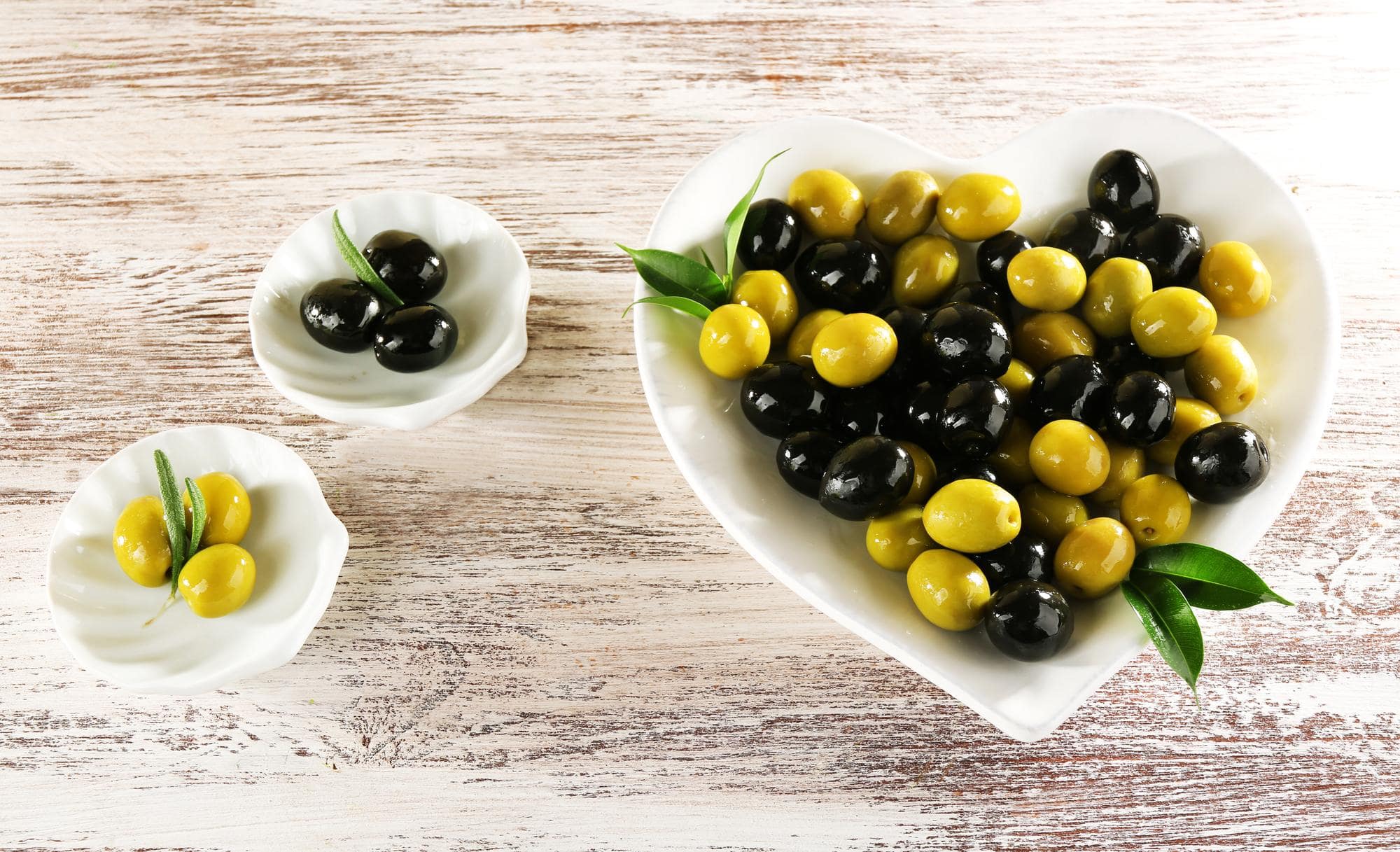Olives are a staple of the Mediterranean diet, known for their distinctive flavor and versatility in cooking. However, concerns often arise regarding their potential effects on health, particularly on blood pressure. A common belief is that olives, due to being preserved in brine, could contribute to increased blood pressure. But is this true, or is it just a myth?
In this article, we will analyze the nutritional profile of olives, their sodium content, and how they impact cardiovascular health. We will also dispel misconceptions about olives and provide tips on how to enjoy them in a healthy way. Let’s uncover whether olives are allies or foes when it comes to blood pressure. If you want to know more about our olives, click here.
Nutritional Composition of Olives
Olives may be small, but they are packed with nutrients that offer significant health benefits, especially for cardiovascular health. Below, we highlight some key nutrients found in olives and their contribution to a balanced diet:
Healthy Fats
Olives are an excellent source of monounsaturated fats, particularly oleic acid, which is the main component of olive oil. This type of fat is beneficial for heart health as it helps lower bad cholesterol (LDL) while potentially increasing good cholesterol (HDL). Monounsaturated fats are also known for their anti-inflammatory and antioxidant properties.
Potassium
Olives provide a good amount of potassium, an essential mineral that plays a crucial role in regulating blood pressure. Potassium helps counteract the effects of sodium in the body, balancing water levels in cells and reducing tension in blood vessels. Ensuring an adequate potassium intake is key to maintaining healthy blood pressure levels.
Fiber
Olives contain dietary fiber, which is essential for good digestion and gut health. Fiber also helps regulate blood sugar levels and manage cholesterol, contributing to overall cardiovascular well-being.
Antioxidants
Olives are rich in antioxidants such as vitamin E and polyphenols, which protect cells from oxidative damage. These compounds have anti-inflammatory properties and can help lower the risk of chronic diseases, including heart-related conditions.
Vitamins and Minerals
Olives provide vitamins A, E, and K, which are vital for skin health, vision, and immune function. They also contain calcium and magnesium, essential minerals for bone and muscle health.
Salt and Sodium in Olives
One of the most frequently discussed components of olives is their sodium content, particularly in cured or brined varieties. While excessive sodium intake can lead to high blood pressure, it’s important to note that not all olives have the same salt content. There are low-sodium varieties available, making them a healthier choice for those monitoring their salt intake.
The Role of Sodium in Olives
Olives, especially those cured or preserved in brine, have a higher sodium content due to the curing process. While sodium is an essential mineral for the body, excessive consumption can contribute to increased blood pressure and a higher risk of cardiovascular diseases.
However, this doesn’t mean olives should be eliminated from the diet. When consumed in moderation, they can still be part of a healthy eating plan. Additionally, there are low-sodium or salt-free olive options available. Rinsing brined olives before consumption can also help reduce their sodium content.
In summary, enjoying olives in moderation and opting for low-sodium varieties allows you to reap their benefits without concerns about their impact on health.
The Cardiovascular Benefits of Olive Oil
Olive oil is a fundamental pillar of the Mediterranean diet, and for good reason. This oil, particularly extra virgin olive oil, provides several scientifically proven benefits for cardiovascular health due to its high content of healthy fats and antioxidants. Here’s how olive oil can support a healthy heart:
- Rich in monounsaturated fats that help balance cholesterol levels.
- Anti-inflammatory properties that reduce the risk of chronic diseases.
- Blood pressure reduction thanks to its beneficial compounds.
- Prevention of blood clots by improving circulation.
- Improved vascular health by protecting arteries and blood vessels.
- Clinically proven benefits supported by numerous studies.
If you’re looking for superior-quality extra virgin olive oil, we recommend our Gourmet Extra Virgin Olive Oil for a premium culinary experience.










